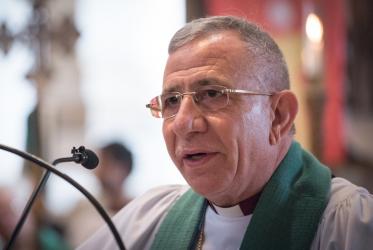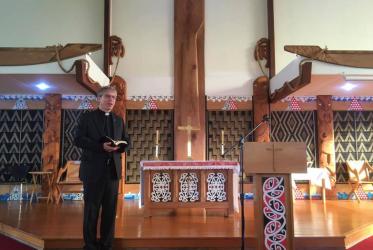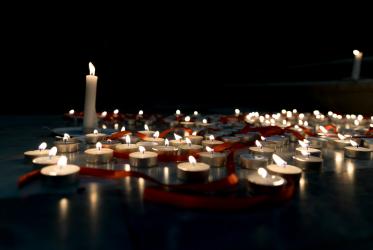Displaying 61 - 80 of 138
G7 must address famine
22 May 2017
“Overcoming economic injustice” vision of WCC’s Athena Peralta
23 February 2017
Bishop Younan awarded Niwano Peace Prize
22 February 2017
WCC offers condolences upon death of Anglican Archbishop Turei
13 January 2017
New videos help congregations hasten HIV response
20 October 2016
WCC general secretary visits Aotearoa New Zealand
10 October 2016
Prayer and hope mark anniversary of atomic bombings
05 August 2016
New Executive Committee members elected in Trondheim
28 June 2016
Voices from HIV workshop reflect deep impact
07 April 2016








